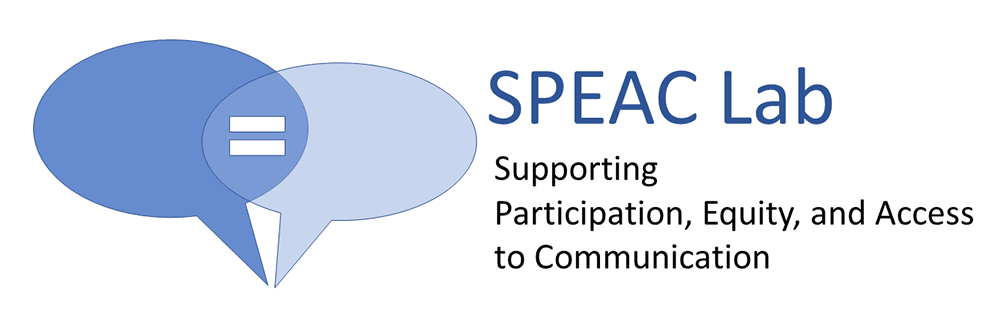
Care Plan
Emotional & Mental Health

Oral Care
Supportive Services
Communication
More Resources and Guides
Cancers that are known collectively as head and neck cancers usually begin in the squamous cells that line the mucosal surfaces found inside the mouth, throat and voice box.
Squamous cell carcinomas account for nearly 4% of all cancers in the United States. Head and neck cancers can also begin in the salivary glands, sinuses, muscles or nerves in the head and neck.
To learn more about head and neck cancers, visit the National Cancer Institute’s website.
For Head and Neck Cancer Survivors
The Cancer Survivorship Checklist is designed to be a simple, straightforward tool patients and caregivers can use as a guide for information critical to their care wherever they are on the cancer care continuum.
Hear patients and health care professionals share their experiences and suggestions for people navigating head and neck cancer treatment and survivorship.
Stef is a tongue cancer survivor. She shares about the importance of receiving a care plan at the end of treatment. The plan includes a summary of treatment, plans for future tests and visits, short- and long-term treatment side effects, and cancer screening recommendations.
Learn More about Stef’s Story »
Video Runtime: 4:49
Tracy is a breast and tongue cancer survivor. She shares her experience of having a dentist specializing in oncology and how important it can be for survivors of head and neck cancer. Tracey shares how she focuses on maintaining good oral care throughout the day and how she deals with her dry mouth as a result of radiation.
Video Runtime: 11:18
Tom is an angiosarcoma cancer survivor. He discusses why it is important for patients to seek supportive services, such as cancer rehabilitation, during and after cancer treatment. Tom also shares how using the NCCS Cancer Survivorship Checklist, and bringing it to medical appointments, can help patients know the right questions to ask their care team.
Video Runtime: 3:16
Dr. Georgia Anderson, PhD, MSW explains the role of oncology social workers and how they can help to support those with head and neck cancers. A social worker’s role is to relay medical information in a patient friendly manner and share with your medical team what is important to the patient. This helps to create a treatment plan that the patient can tolerate and gives the patient the ability to meet their goals of care.
Dr. Anderson has been a social worker nearly 20 years. Her early career was spent working in the community mental health system before transitioning to medical social work. Most of her career has been spent working in oncology and palliative care at The Barrett Cancer Center at UC Health. She earned her PhD in social work in 2021 and currently is an Assistant Professor at the University of Cincinnati.
Learn More about Dr. Anderson »
Video Runtime: 9:55
Resources from the University of Washington SPEAC Lab
Dr. Carolyn Baylor presents strategies to stay connected with people in a patient’s life when speaking is difficult. She suggests giving friends and extended family clear communication instructions and acknowledging that it takes time to adjust to new communication methods. Dr. Baylor shares that making small changes to daily communication habits is helpful and recognizing that communication is impacted by the constant change of speech and other symptoms on a daily basis.
Video Runtime: 13:34
Dr. Carolyn Baylor, PhD, CCC-SLP is a speech-language pathologist and associate professor in the Department of Rehabilitation Medicine. Her research focuses on qualitative and quantitative research related to patient-reported outcomes, participation-focused intervention, and environmental barriers to community participation for adults with acquired communication disorders. She is the primary investigator at The SPEAC Lab at the University of Washington.
Dr. Carolyn Baylor presents strategies for family and friends to better communicate with the head and neck survivors in their lives. She suggests asking the survivor what is helpful to communicate and take time to adjust to different styles of communication. Dr. Baylor suggests spending time together sharing interests that do not require much talking. It is important for family members and friends to continue to maintain their own social connections to maintain their own quality of life.
Video Runtime: 16:57
Dr. Carolyn Baylor shares how brain fog impacts relationships between head and neck cancer survivors and their loved ones. Brain fog is a real symptom and being transparent about how it affects the patient will help to maintain their relationships. Dr. Baylor suggests reducing distractions at important times to improve communication and process information. Creating simple systems to help the patient remember important information may reduce frustration and improve daily functioning.
Video Runtime: 14:43
Dr. Carolyn Baylor presents strategies to improve communication with health care providers due to the communication barriers in medial settings. She suggests preparing ahead of time for medical visits and letting your health care provider know how the patient communicates best. Dr. Baylor suggests bringing someone that can support you during the visit and getting access to visit summaries through the portal.
Video Runtime: 17:56
Dr. Carolyn Baylor, PhD, CCC-SLP presents ways that head and neck cancer survivors can support and contribute to research. The University of Washington SPEAC Lab is interested in understanding the day-to-day lived experience of communication, what is (or is not) helpful to support communication, and the experiences of family members of head and neck cancer survivors. They are conducting a study and invite survivors and loved ones to participate.
Find out more about the study here »
Video Runtime: 15:33
 University of Washington SPEAC Lab
University of Washington SPEAC LabAt the SPEAC Lab, our mission is driven by our commitment to supporting participation and advancing equity and access to communication for adults with speech and voice disorders, and adults facing other communication changes.
For people with communication challenges, participation in daily activities can be affected by not only their own communication abilities, but also their social interactions with others, the environment in which they communicate, and the resources that are available to them to communicate authentically. We are passionate about finding innovative ways to help individuals with adult-onset speech and voice disabilities and communication changes to stay connected with others through communication by reducing potential communication barriers in their environment.
 The American Speech-Language Hearing Association (ASHA)
The American Speech-Language Hearing Association (ASHA)We at ASHA are a dynamic community of audiologists, speech-language pathologists, scientists, assistants, and other affiliated professionals, dedicated to transforming lives. Through partnership and collaboration, we advance science, foster excellence in education and professional practice, establish standards, and advocate for accessible and quality care for all.
NCCS Survivorship Champions Webinar
Oral side effects and untreated dental diseases can cause added pain, financial hardships, psychological distress, and a diminished quality of life for those being treated for cancer. Oral effects can also lead to complications or delays of therapies, which can compromise treatment outcomes. Oral changes may have a continued negative impact post-treatment.
Jill Meyer-Lippert, RDH, a longtime dental hygienist and founder of Side Effect Support, discusses the current evidence of oral-systemic links with various types of cancer and success stories of hospital-based oral health programs.
This presentation reviews potential oral side effects associated with various cancer treatments, as well as ways to prevent, delay, or reduce these complications by focusing on prevention and patient education. A focus on oral hygiene modifications and product recommendations will help us to empower our patients to make surprisingly simple changes to reduce their risks.
Read more information and resources from this webinar on our blog »
Video Runtime: 59:52
NCCS Cancer Policy & Advocacy Team Webinar
The treatment of head and neck cancer (HNC) often involves surgery, radiation, and chemotherapy. This treatment is critical for controlling or curing head and neck cancer. Though necessary, these treatments, particularly radiation therapy, can cause fibrosis (hardening) of the tissues, neck and face. This is known as radiation fibrosis. Radiation fibrosis can be painful and result in loss of neck movement, inability to open the mouth, trouble speaking, trouble swallowing, shoulder problems, swelling (known as lymphedema), and many other issues.
Dr. Michael Stubblefield of the Kessler Institute for Rehabilitation is joined by Speech Language Pathologist Brittany Boynton and Occupational Therapist Jennifer Maximos Hrdina, all of whom specialize in cancer rehabilitation. The team discusses how to know if you have radiation fibrosis, how medical professionals evaluate it, and importantly, how to treat it.
Read more information and resources from this webinar on our blog »
Learn more about Dr. Stubblefield »
Video Runtime: 1:00:17
 Made of More
Made of MoreMade of More is an initiative created by HNCA, SPOHNC, THANC, CancerCare, and Eisai Inc. to help people affected by head and neck cancer (HNC) feel heard and supported as part of a broader community.
Those who experience HNC are made of more than just their disease. Although they may face many difficult challenges, people with HNC and their loved ones are resilient—and they have important stories to tell. On this site, you’ll find personal accounts of those impacted by HNC, as well as useful resources and information to help others navigate their own experiences with HNC.
This initiative is supported by an educational grant from EMD Serono.